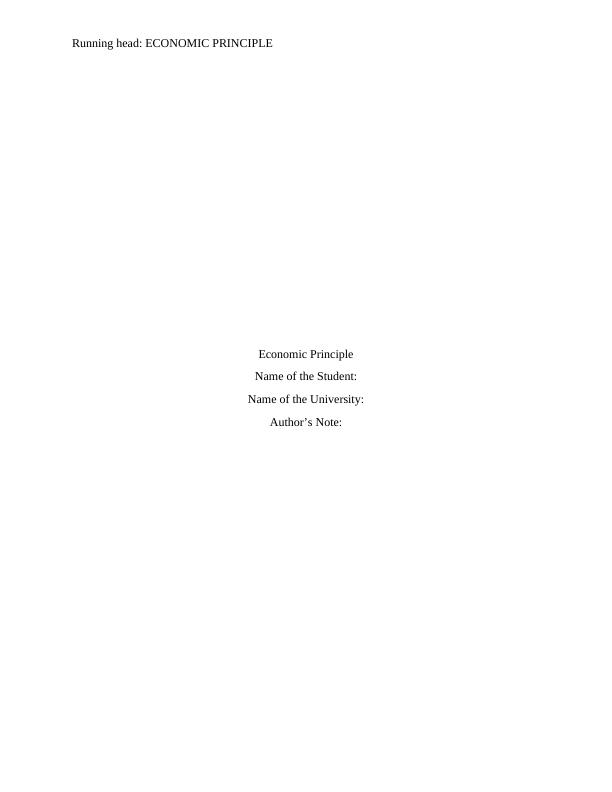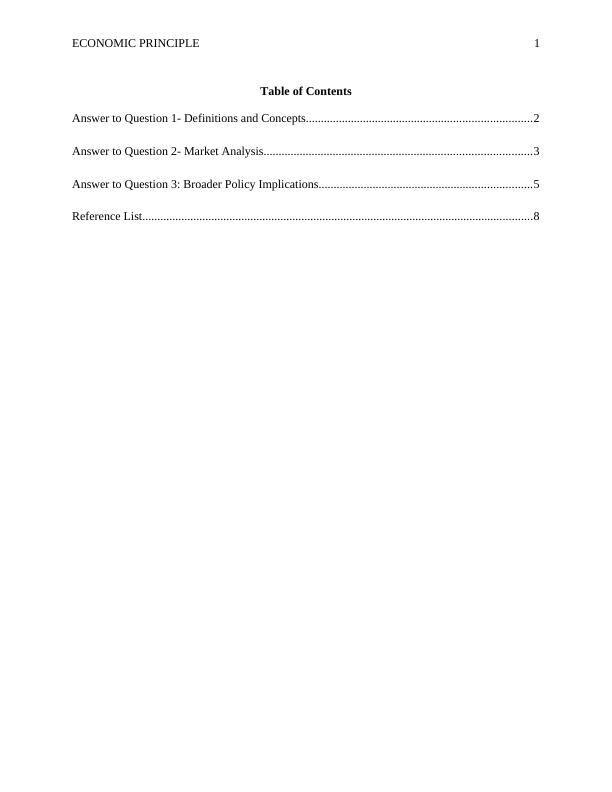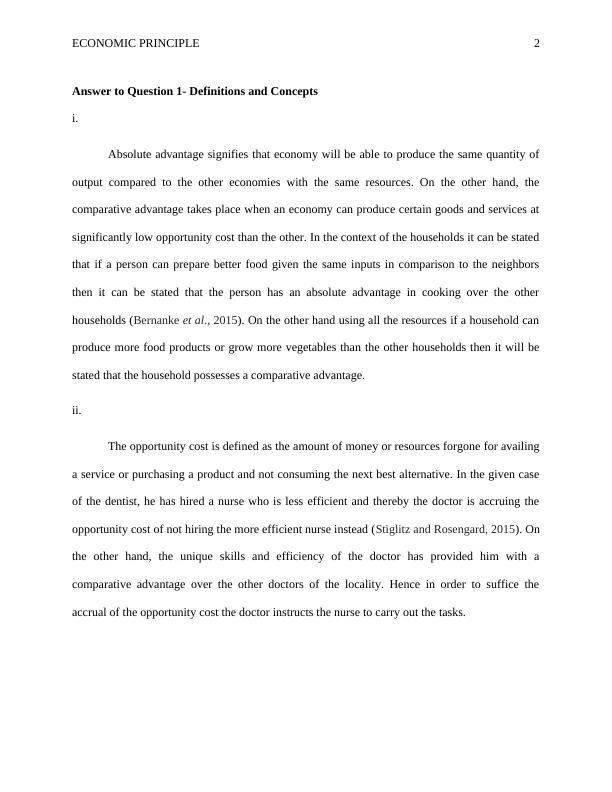Economic Principle: Definitions, Concepts, Market Analysis, and Policy Implications
Assignment 1 – Trade and Tariffs for the MAE101 Economic Principles course at Deakin College/Deakin University in Trimester 1.2018. The assignment is an individual written assignment with a word limit of 800-1000 words. The assignment is worth 10% of the total marks and is due on Monday, 7 May 2018 at 11pm.
9 Pages1170 Words459 Views
Added on 2023-06-12
About This Document
This article discusses economic principles such as absolute and comparative advantage, opportunity cost, market analysis, trade restrictions, dumping, and free trade. It also explores the broader policy implications of free trade and import tariffs.
Economic Principle: Definitions, Concepts, Market Analysis, and Policy Implications
Assignment 1 – Trade and Tariffs for the MAE101 Economic Principles course at Deakin College/Deakin University in Trimester 1.2018. The assignment is an individual written assignment with a word limit of 800-1000 words. The assignment is worth 10% of the total marks and is due on Monday, 7 May 2018 at 11pm.
Added on 2023-06-12
ShareRelated Documents
End of preview
Want to access all the pages? Upload your documents or become a member.
Principles of Economics - Assignment
|9
|1546
|137
Economics Development - Sample Assignment
|7
|807
|43
Economics Principles Answer Question 2022
|9
|1386
|15
THE ECONOMICS ASSIGNMENT
|10
|1017
|18
Understanding the Impact of Imposing Tariffs on Chinese Imports: International Economics Analysis
|6
|1063
|264
International Business
|7
|797
|334



